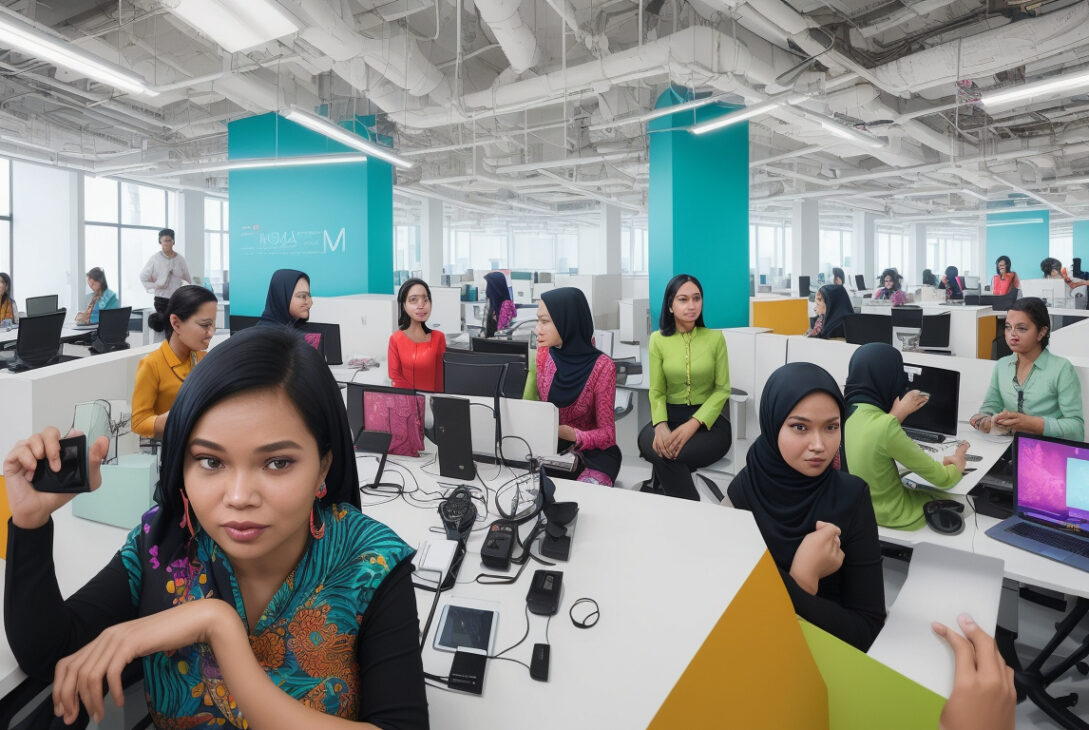Businesses Must Prioritize Accessibility and Inclusivity in Technology: Insights from RSM’s Angela Simatupang
As Indonesia accelerates its digital transformation, technology companies and businesses across sectors are urged to rethink how they integrate technology to support accessibility and inclusivity. Angela Simatupang, Senior Partner and Head of Governance, Risk Control, and Technology Consulting at RSM Indonesia, highlights the imperative for companies to adopt proactive, forward-looking strategies to build digital resilience and sustainable growth.
Digital Risk Management in Indonesia: A Work in Progress
Drawing on over 20 years of experience in governance, risk, and technology advisory, Simatupang observes that although sectors such as banking and financial services have made commendable progress in digital risk management, many Indonesian businesses, especially mid-market firms, still regard it primarily as a compliance checklist rather than a strategic priority. Awareness at the board level is improving, but in many industries outside finance, digital risk management tends to be handled solely by IT departments without broader management accountability. This fragmented approach leaves organizations vulnerable amid rapid digital adoption.
Challenges in Cybersecurity and Regulatory Compliance
Indonesia’s rapid shift towards digital platforms has outpaced the nation’s cybersecurity preparedness. Increasing incidents of data breaches, ransomware, and social engineering attacks have particularly affected SMEs and startups, underscoring gaps in basic cyber hygiene practices. Compounding these threats is the evolving regulatory landscape, particularly the Personal Data Protection Law (UU PDP), which many companies find challenging to navigate due to overlapping provisions among various agencies. These complexities elevate the risks for businesses heavily reliant on digital consumer engagement.
Shifting to a Proactive Cybersecurity Mindset
Simatupang advocates that technology companies must adopt a proactive cyber defense posture, embedding “security by design” principles early in product development and operational processes. Regular penetration testing, comprehensive employee cybersecurity training, and robust incident response plans are now essential components of a resilient cybersecurity strategy. Furthermore, fostering collaborations for threat intelligence sharing, especially when operating within regional or global ecosystems, is crucial. Treating cybersecurity as a strategic business issue rather than merely a technical concern will be vital to strengthening Indonesia’s digital infrastructure.
Ensuring Long-Term Impact Through Accessible and Inclusive Technology
For digital transformation initiatives to be sustainable, Indonesian companies need to go beyond chasing the latest trends and focus on technologies aligned with their business objectives. This includes prioritizing solutions that are scalable, maintain data integrity, and build process resilience. Considering Indonesia’s geographic and demographic diversity, technology must also enhance customer accessibility and inclusivity, particularly for populations outside major urban centers. Empowering internal capabilities beyond vendor reliance and ensuring compliance with evolving regulations should remain central to transformation plans.
Future-Focused Innovation and Strategic Priorities
Looking ahead, Simatupang identifies data-driven decision-making powered by analytics, artificial intelligence, and automation as pivotal differentiators in key sectors such as retail, manufacturing, and financial services. Cloud technology adoption will enable businesses to expand beyond Java into Indonesia’s vast archipelago. Strengthening cybersecurity and governance will not only safeguard digital assets but also build essential trust with consumers and regulators. Additionally, integrating technology aligned with environmental, social, and governance (ESG) commitments will position companies favorably as sustainability gains prominence.
Evaluating Excellence in Technology Innovation
As a judge for the Indonesia Technology Excellence Awards 2025, Simatupang emphasizes assessing nominees based on their ability to deliver real business impact through technologically excellent, market-relevant solutions. Innovations that demonstrate adaptability across Indonesia’s varied regions and address localized challenges—such as extending access to underserved areas—will be particularly valued. Equally important are efforts that marry technology deployment with robust risk management, strong governance, scalability, and leadership dedicated to fostering a culture of innovation. The awards aim to recognize those shaping Indonesia’s digital future responsibly and sustainably.
Conclusion
Angela Simatupang’s insights underline a critical trajectory for Indonesian businesses: technology must serve as a driver for inclusivity and accessibility while being embedded within comprehensive risk and governance frameworks. As digital transformation deepens, businesses that proactively manage digital risks, comply with regulations, and innovate thoughtfully stand the best chance to thrive in Indonesia’s evolving digital economy.
For more news and expert analysis on technology and business in Indonesia, explore additional insights from RSM Indonesia and thought leaders driving change in the region.










